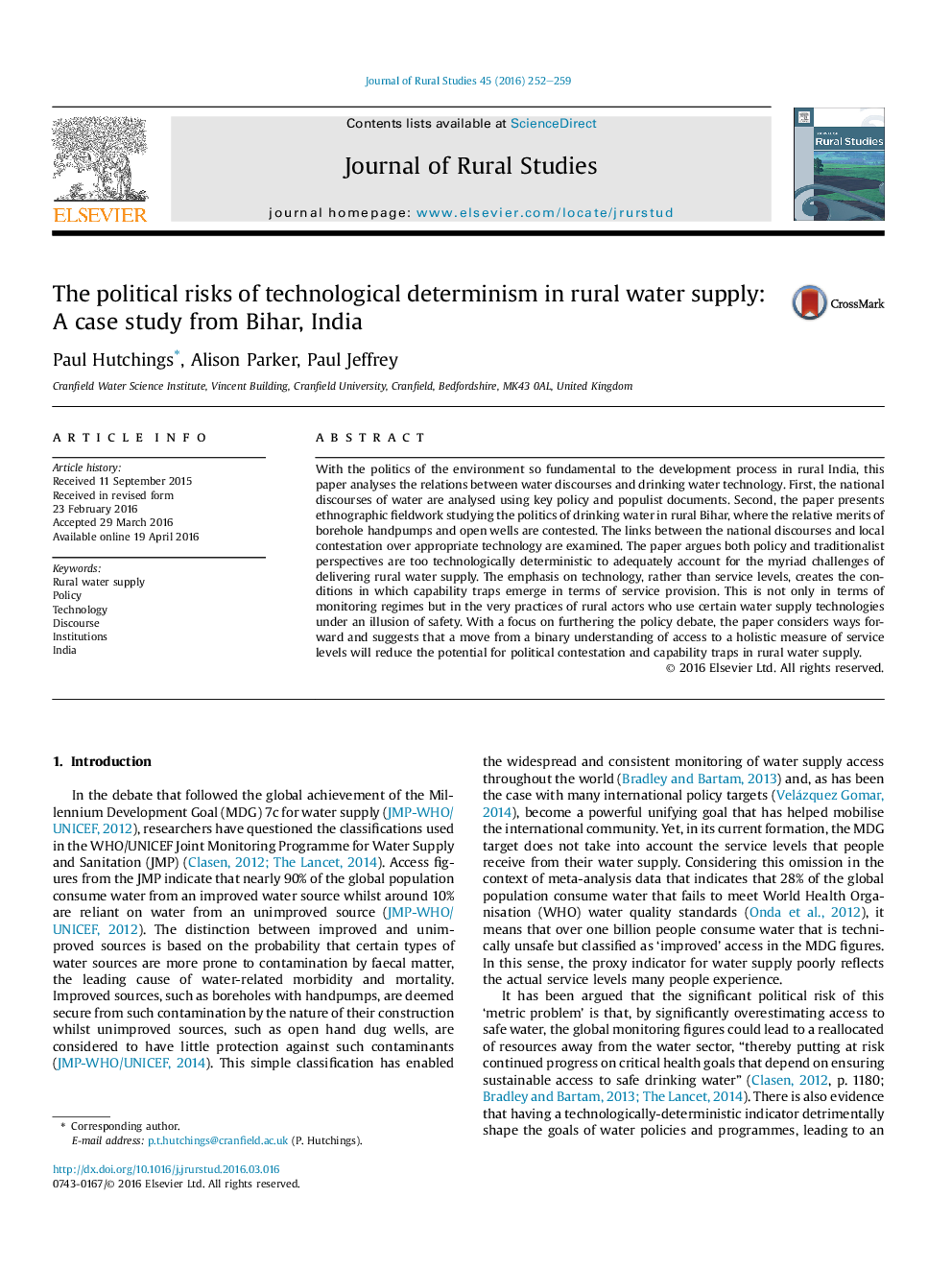| Article ID | Journal | Published Year | Pages | File Type |
|---|---|---|---|---|
| 6545427 | Journal of Rural Studies | 2016 | 8 Pages |
Abstract
With the politics of the environment so fundamental to the development process in rural India, this paper analyses the relations between water discourses and drinking water technology. First, the national discourses of water are analysed using key policy and populist documents. Second, the paper presents ethnographic fieldwork studying the politics of drinking water in rural Bihar, where the relative merits of borehole handpumps and open wells are contested. The links between the national discourses and local contestation over appropriate technology are examined. The paper argues both policy and traditionalist perspectives are too technologically deterministic to adequately account for the myriad challenges of delivering rural water supply. The emphasis on technology, rather than service levels, creates the conditions in which capability traps emerge in terms of service provision. This is not only in terms of monitoring regimes but in the very practices of rural actors who use certain water supply technologies under an illusion of safety. With a focus on furthering the policy debate, the paper considers ways forward and suggests that a move from a binary understanding of access to a holistic measure of service levels will reduce the potential for political contestation and capability traps in rural water supply.
Related Topics
Life Sciences
Agricultural and Biological Sciences
Forestry
Authors
Paul Hutchings, Alison Parker, Paul Jeffrey,
